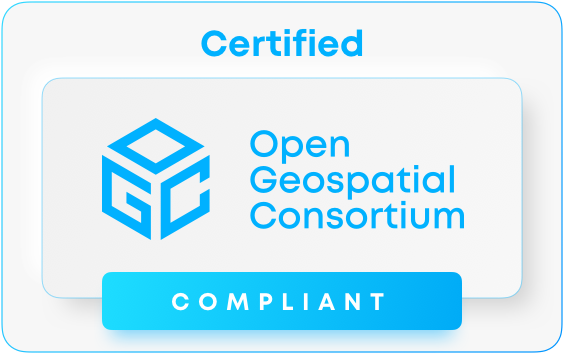-
-
Notifications
You must be signed in to change notification settings - Fork 155
Release Packaging
The following are step by step instructions on how to package a release.
Make sure the source builds and works locally, and the docs build with no errors
Make sure the source passes all OGC CITE tests (see OGC-CITE-Compliance for instructions) and unit tests (py.test -k "not harvesting")
Create a release tag against master:
* update desired branch with `x.y.z` in the following files:
* `VERSION.txt`
* commit the above updates:
```
# in branch master
git commit -m 'update release version' VERSION.txt
git push origin master # or branch if releasing from a branch
```
* in the `pycsw.org` repository, update:
* `docs/index.md` <-- only if this is a final release
* `download/index.md` to set the current release URL to https://download.osgeo.org/pycsw-x.y.z.tar.gz and https://download.osgeo.org/pycsw-x.y.z.zip
```
# in pycsw.org repository
git commit -m 'update release version' docs/index.md download/index.md
git push origin gh-pages
```
Release tags are in the format `x.y.z`
If releasing from master:
```
git tag -a x.y.z -m 'tagging x.y.z'
git push --tags
```
If releasing from a branch:
```
git checkout x.y
git tag -a x.y.z -m 'tagging x.y.z'
git push --tags
```
Export the package:
```
git archive --format=tar --prefix=pycsw-x.y.z/ x.y.z | (cd /tmp/ && tar xf -)
cd /tmp/pycsw-x.y.z/
```
Make the docs locally for the distribution and generate tester/index.html:
paver refresh_docs
paver gen_tests_html
Package the distribution:
cd ..
tar cf pycsw-x.y.z.tar pycsw-x.y.z
gzip pycsw-x.y.z.tar
zip -r pycsw-x.y.z.zip pycsw-x.y.z
Copy pycsw-x.y.z.tar.gz and pycsw-x.y.z.zip to the download area on https://download.osgeo.org/pycsw
scp pycsw-x.y.z.tar.gz pycsw-x.y.z.zip [email protected]:/osgeo/download/pycsw
Add the x.y.z documentation to readthedocs.org
- go to https://readthedocs.org/projects/pycsw/
- under 'Build a version', select 'latest' and click 'Build'
- this will cause readthedocs.org to sync release tags, new version will appear
- go to https://readthedocs.org/projects/pycsw/versions/
- find x.y.z
- click 'Active' and ensure visibility is set to 'Public'
- click 'Submit'
Create a release branch if this is major release.
git branch x.y
git push origin x.y
If applicable (for final releases only, not beta or rc releases), update master with the development version to x.y-dev in the following files:
VERSION.txt
...and then git push origin master
Upload to PyPi (for final releases)
git checkout x.y.z
python setup.py sdist bdist_wheel --universal
twine upload dist/*.gz dist/*.whl
- Note: for alpha/beta/rc releases, use TestPyPI
git checkout x.y.z-beta1
# if package is not registered
python setup.py sdist upload -r https://test.pypi.org/legacy/
If major release:
- in
pycsw.orgrepositorygh-pagesbranch:- git add development/announce/x.y.z.md
- vi development/announce/index.md
- git commit -m 'add release announcement page' development/
- git push origin gh-pages
Email announcement to:
- pycsw-devel
- OSGeo-discuss <-- only for final releases
- OSGeo-announce <-- only for final releases
Subject: pycsw x.y.z released
The pycsw team announces the release of pycsw x.y.z.
[High level overview of release]
Source and binary downloads:
----------------------------
The source code is available at:
https://pycsw.org/download.html
Version x.y.z (YYYY-MM-DD):
---------------------------
[Bulleted list of enhancements / bug fixes]
Testers and developers are welcome.
The pycsw developer team.
https://pycsw.org
Note: for announcing to new communities, add:
pycsw is an OARec and OGC CSW server implementation written in Python.
pycsw fully implements the OGC API - Records and OpenGIS Catalogue Service Implementation Specification (Catalogue Service for the Web). Initial development started in 2010 (more formally announced in 2011). The project is certified OGC Compliant, and is an OGC Reference Implementation. Since 2015, pycsw is an official OSGeo Project.
pycsw allows for the publishing and discovery of [[geospatial]] metadata via numerous APIs (OARec, CSW 2/CSW 3, OpenSearch, OAI-PMH, SRU). Existing repositories of geospatial metadata can also be exposed, providing a standards-based metadata and catalogue component of spatial data infrastructures.
pycsw is Open Source, released under an MIT license, and runs on all major platforms (Windows, Linux, Mac OS X).
Refresh Zenodo/DOI
- Go to https://zenodo.org/account/settings/
- Click "Sync now"
- See newly minted DOI based on new pycsw version
- update pycsw README
- click on "Get the DOI badge!"
- copy the Markdown
- update
README.md git commit -m 'update DOI' README.md && git push origin master
Update https://en.wikipedia.org/wiki/Pycsw (for final releases)
- release information
- history (for major and minor releases)
- new features/enhancements


